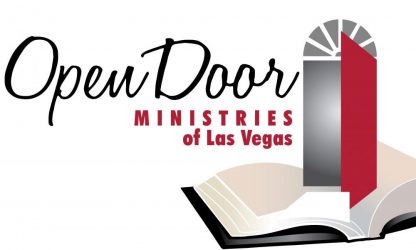
“The Great Commission” begins with the following words spoken by Jesus to his disciples: “All authority in heaven and on earth has been given to me.” (Mat. 28:18) The word, authority, translates the Greek word exousia (ex-oo-si-a), a combination of two words–ex, meaning “out of” and ousia meaning “being.” Together, it literally means “out of being” in the sense of something being “sent out.” Out of being implies the existence of an “origin” or source that possesses the liberty to act as it sees fit, the inherent right to make decisions, the ability to exercise power or rule over something or someone as it would please itself to do so. Importantly, exousia, that is, authority, can be conferred, transferred or delegated from one person (the origin or source) to another.
There are 102 instances of exousia in its various grammatical forms in the New Testament. Ten of these instances are found in the Book of Matthew, one of which we have already discovered in verse 28:18. A corresponding word in Hebrew that provides an interesting imagery for the use and meaning of exousia in Matthew is the word s’mikah. The root of this word is samak, referring literally to the laying of hands upon a person or an animal. There are numerous instructions involving this word in connection to the giving of a sacrifice. For instance, in Leviticus 1:4 we read, “And he (the person making the offering) shall put his hand (v’samak yadov) on the head of the burnt offering and it shall be accepted for him to make atonement for him.” This then signified a transfer of ownership of the animal from the person to God, as well as a transfer of the person’s sin from himself to the animal. Another aspect of samak, in the context of authority, referred to one’s ability and permission to discern and carry out the will of God. This measure of authority was considered to have been passed down from generation to generation by the laying of hands (samak), an instance of which was the transfer of authority from Moses to Joshua. In Deuteronomy 34:9, we read: “Now Joshua son of Nun was filled with the spirit of wisdom because Moses had laid his hands (samak yadov) on him. So the Israelites listened to him and did what the LORD had commanded Moses.” The Book of Numbers provides further insight about the “transfer of authority” from Moses to Joshua: “So the LORD said to Moses, ‘Take Joshua son of Nun, a man in whom is the spirit, and lay your hand on him. . .Give him some of your majesty so the whole Israelite community will obey him’. . . Moses did as the LORD commanded him. . .He laid his hands on him and commissioned him.” (Numbers 27:18-20, 22-23)
At or near the days of Jesus upon the Earth, a select group of rabbis were considered to have s’mikah, that is, to have the authority to interpret Scripture, not simply teaching someone else’s understanding of the Torah. One of those in the generation preceding Jesus was Rabbi Hillel who coined the phrase “what is hateful to you, do not do unto others”–the “Golden Rule” of Judaism. He followed that by saying “this is the whole Torah, all else is explanation.” This is reflected in Jesus’ saying “Do unto others what you would have them do unto you for this sums up the Law and the Prophets.” (Matthew 7:12) At the close of the Sermon on the Mount, Matthew states “When Jesus had finished saying these things, the crowds were amazed at his teaching, because he taught as one who had authority (exousia), and not as their teachers of the law.” (Matthew 7:28-29) This is the first instance of the use of exousia in the Book of Matthew.
It would be followed shortly thereafter by another. In Chapter 8, a centurion–a commander in the Roman army–asked Jesus to heal his servant. Jesus offered to pay a visit to the centurion’s residence to which the officer humbly objected, preferring instead that Jesus just say the word which would thereby heal his servant. And then followed a mention by the centurion of exousia: “For I also (kai) am a man under authority (hupo exousian tassomenos), with soldiers under me. I tell this one, ‘Go,’ and he goes; and that one, ‘Come,’ and he comes. I say to my servant, ‘Do this,’ and he does it.” (Matthew 8:9) To this, Jesus “marveled” that he had never met a man in all of Israel with such great faith, for authority sits at the very essence of faith–it is the trusting obedience of one for his superior–in this case, the trust of a soldier for his commander, the trust of a servant for his master, the trust of a disciple for his teacher. The Greek word “tasso” refers to an “ordered arrangement”–the centurion had a place in a chain of authority. He was at once “under the authority of another, and in turn, his soldiers were under his authority. Each knew their “place” and their responsibility, and did what they were told. Moreover, the centurion had been given the authority from his superior to carry out his appointed task, and he in turn, gave authority to his soldiers to carry out their appointed tasks. Permission was “sent out” (exousia) from the highest authority to one “under him” along with the power to carry out an instruction, who in turn, gave permission and power for those under him to carry out the same instruction, and so on all the way down to the lowest foot soldier. When Jesus commended the centurion’s faith, it was not only about the centurion’s faith that Jesus could heal from afar, but it was also, if not primarily, that the centurion knew his “place” in the hierarchy of authority in which he operated as an officer.[1]
When the centurion told Jesus, “for I also (kai) am a man under authority,” he was drawing a parallel between himself and Jesus, the Messiah, who Himself was “sent out” at a time appointed by God (the fullness of time–pleroma o chronos) to redeem the world. The centurion understood something about Jesus–that Jesus was also under authority–the authority of God, His Father. We find this fatherly authority expressed explicitly in the Book of John, in which Jesus states: “I tell you the truth, the Son can do nothing by himself; he can do only what he sees his Father doing, because whatever the Father does the Son also does.” (John 5:19) “I do nothing on my own but speak just what the Father has taught me.” (John 8:28) “For I did not speak of my own accord, but the Father who sent me commanded me what to say and how to say it.” (John 12:49) Jesus belongs to a genealogy of authority, beginning with Judah, fourth son of Jacob who said of his son: “The scepter will not depart from Judah, nor the ruler’s staff from between his feet.” (Gen. 49:10) The scepter is the “staff of authority”, and it is in the ancestral line of Judah that the kings of Israel and Judah would be born, starting with King David, in whom the throne became hereditary, and leading ultimately to Jesus the Messiah, the King of Kings. This genealogy of authority begins even before Judah with the “fatherly authority” of Abraham transmitted over the generations leading to the Davidic line of kingly authority, and finally, to the Lord Jesus. We see this entire “lineage of authority” unfold beginning in Matthew Chapter 1.
The topic of authority begins the Book of Matthew and also concludes it. In the final verses of Chapter 28 as found at the beginning of this article, Jesus states that “all authority (exousia) in heaven and on earth has been given to Me.” (28:18) The words “has been given to Me” implies an antecedent source of authority–that is, God. Jesus, in turn, authorizes His disciples to “disciple all nations. . .” (28:19) If the centurion belonged to a hierarchy of authority, we do also as disciples of Jesus–we are permitted and empowered to make even more disciples, each person in the chain understanding their “place” in God’s “government” as it were, His Kingdom. This Kingdom is not so much a place, but a movement of men into the sphere of God’s authority, entering into God’s “order” by submitting to His rules and instructions. Though we have the ability to comply with God’s instructions, whether we do so is not a matter of force, but rather a matter of choice. For authority to take hold, there must be compliance. Authority and compliance are the two key elements of the “relationship” between a master and his servant, a commander and his soldier and in our case, a disciple and his teacher. When Jesus commended the centurion for his faith–“with no one in Israel have I found such faith”–the clear implication is that it is the few, not the many, who precisely grasp their “place” in God’s order of things, thereby entering into a deep relationship with their Creator.
END NOTES
[1] Pastor Fernando Basilio provides an even deeper treatment of the meeting between Jesus and the centurion. He aptly describes it as an encounter between two authority figures. However, the centurion correctly surmised that Jesus was the higher authority. When he protested that Jesus should come under his roof (Matthew 8:8), Pastor Basilio states: “it would mean that Jesus will come ‘under’ the centurion’s authority. And the centurion would have none of that.” For a more detailed analysis, please navigate to www.fojlv.org/?p=466



One Reply to “Authority”